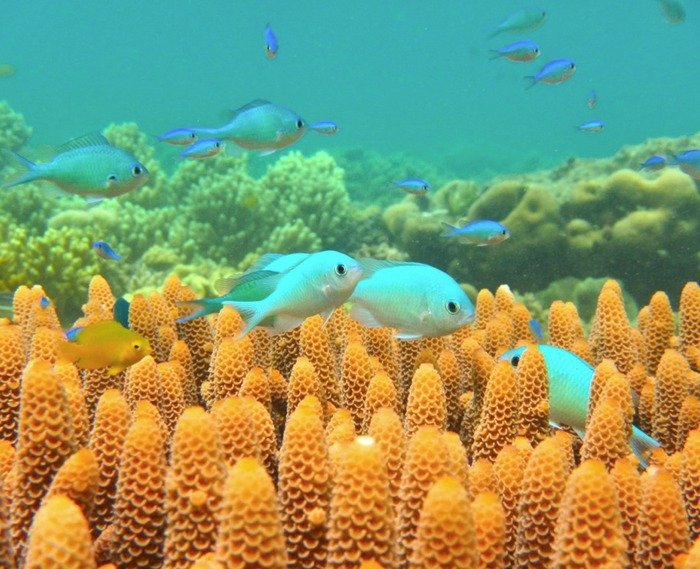TOWNSVILLE CITY, Australia, Feb. 11 (UPI) -- Rapid climate change threatens the future presence of fish near the equator, say Australian scientists studying common species of fish living on coral reefs.
"Our studies found that one species of fish could not even survive in water just 3 degrees Celsius [5 degrees F] warmer than what it lives in now," said lead study author Jodie Rummer from the ARC Center of Excellence for Coral Reef Studies at James Cook University.















